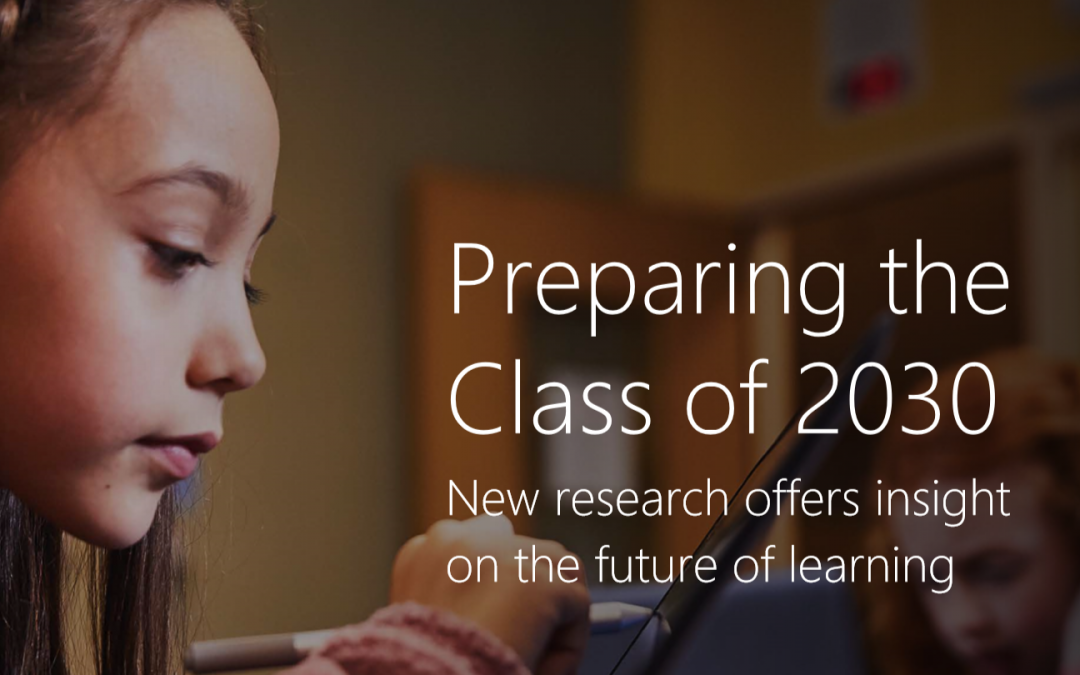New Microsoft study highlights how technology is key to enabling innovative, personalized learning.
Conducted by Microsoft in collaboration with McKinsey & Company’s Education Practice, the study was highlighted at Microsoft Inspire 2018.
Microsoft Inspire 2018, which just wrapped up in Las Vegas July 15-19, offered 16,000+ Microsoft partners opportunities to learn how new technology is driving organizational transformation around the world. And education is one arena where technology is decidedly playing a critical role to create innovative learning experiences.
We on the Actiontec ScreenBeam team heard first-hand from partners about their experiences with educational transformation when they visited our exhibit at Inspire . The role of technology in innovating education was also the main topic of several compelling sessions, including one that highlighted an intriguing new study, The Class of 2030 and Life-Ready Learning, conducted by Microsoft in collaboration with McKinsey & Company’s Education Practice.
The study included surveys of 2,000 students and 2,000 teachers across Canada, Singapore, the U.S., and the United Kingdom, as well as interviews with 70 thought leaders, such as researchers, educators, technologists, and policy makers. It also included in-depth review of 150 pieces of previous research.
Findings from the study suggest that kindergartners today, the class of 2030, will be better prepared for the future if they are equipped with a solid emotional and social foundation, established in a learning environment personalized to their educational requirements.
This study found students want skilled, trusted teachers who know them personally. Teaching as a profession is one of the least likely to be automated in the future, so maintaining strong teacher-student connections remains more important than ever. The philosophy of personalized learning—customizing curriculums to suit the interests and needs of students and giving personalized feedback to students to accelerate cognitive and academic growth—is key.
How can education leaders begin to bridge this personalized learning gap to transform education and provide young people with the support and skills they need?
This is where technology comes in.
The right technology can encourage inclusive, personalized and immersive learning experiences, helping educators shift from using an education strategy based around standardized curriculum to a student-focused one that is customized to student needs and emphasizes social-emotional skills.
In fact, Microsoft’s study reveals that with technology tailored to the needs of students and educators, teachers can get up to 30 percent more time back that they can then devote to providing better, more personalized instruction to their students.
Our ScreenBeam wireless display solutions are designed to make teachers more mobile. Mobility gives teacher proximity control making them more accessible so students can ask questions at any point because they are close by. That closeness helps to promote stronger, emotional connections between teacher and students, increasing student confidence and participation.
It’s inspiring to imagine how educational technological innovations like wireless display are helping transform education so students can truly thrive in learning environment personalized to their educational requirements.
Want to learn more? Contact Us anytime!
